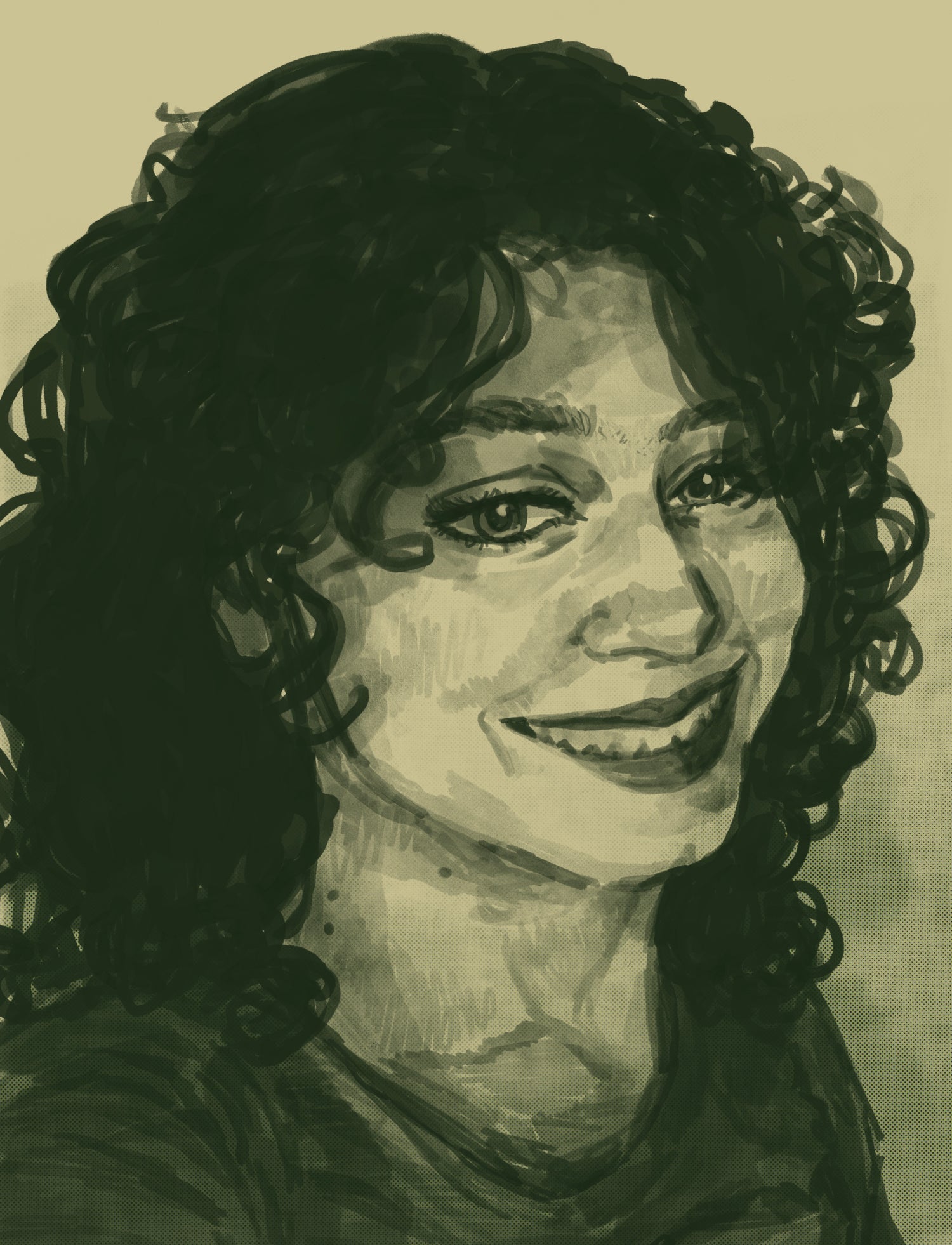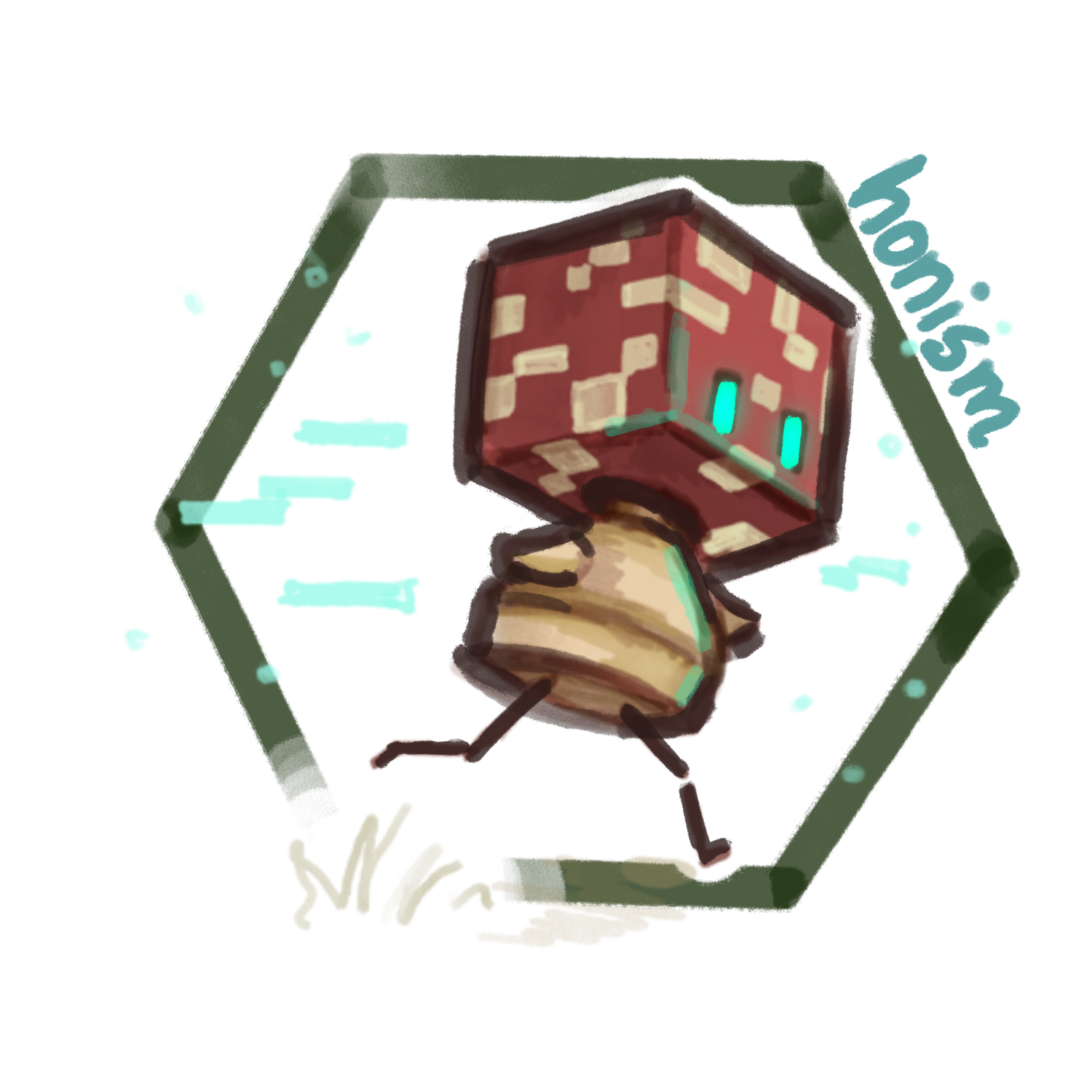About Me
My tragic backstory lol

Meet the Artist :]
Field researcher. Self-made scientist. Feral creekbed kid turned strange little CEO.
That’d be me.
Howdy! I’m Lia. I run Honism Studios, a fictional biotech brand that accidentally became a business. It’s a home for my creatures and a way to combine my love and curiosity to show all of you how to learn a little weirder.
I was raised in Otoe, Nebraska, which isn’t so much a town as it is a rhythm: early mornings, empty roads, and the sound of wind moving over corn like it’s whispering something. I grew up on a farm, where the feral cats looked like they were keeping secrets and the cows looked like they knew something you didn’t. And maybe never would.
I learned by doing. The hard way, mostly. I once learned not to provoke the cattle for fun because the bull will, in fact, hop a fence if you give him the right motivation. I learned what “non-Newtonian” meant by falling into the wrong part of the creek, and I learned patience by digging raw clay out of the bay and molding it into soft, lopsided sculptures that never fully dried. I didn’t know they wouldn’t—but I learned. That’s the thing about childhood on a farm: every question you ask, the world will answer eventually. Often at full volume.
My grandma is still out there running the place. She doesn’t ask to be admired, which is exactly why I do. She taught me how to multiply fractions with brownie batter and how to balance a budget by watching livestock auctions with arms crossed and eyebrows furrowed. She could track the price of feed and a rising storm system in the same breath. I used to sneak baby chicks into the house in my hoodie pockets, give them names—maybe hats—and hold them like sacred prototypes. She’d find me eventually—mid pretend research—and just say,
“Take it back now, honey. That one belongs outside.”
She never taught in lectures. She taught in action. She could quiet a whole room with a glance and still make it feel like a gift.
My grandpa was quieter, but never small. He had a bass voice like a broken-in gospel record—deep, reverberating, slightly amused. He’d sing old Elvis songs off-key and on purpose in his rusted-out Chevy, which he swore was the best truck ever made, even though the door stuck and the brakes were more of a suggestion.
He called me his “twinkle toes,” and watched me fly through an entire day—spitting in the dirt, writing novellas, sewing things, burning dinner, trying on a full face of makeup just to see what it felt like—and still say I was bored.
When he was proud of me, he didn’t say much. He’d just tilt his hat back, give me a smile, and offer a thumbs-up so sincere it might as well have been an oath.
“That’s my little buddy.”
He’s gone now—diabetes complications, after surviving three strokes and a thousand reasons not to. But I still feel him when I do something a little too hard, a little too strange, and I catch myself thinking, He’d have nodded at that. Maybe even hummed along.
I wasn’t alone out there though.
My cousin was my childhood counterpart and one of the only other youngsters in that ghost town—equal parts sharp wit and denim rebellion. She could out-sew, out-sass, and outlast me in almost anything. She carried herself like someone who knew what she was worth before the world got the chance to ask. I watched her stitch things together—dresses, jokes, days that were too heavy—and it taught me that pride doesn’t have to be loud to be present. She didn’t shrink. She didn’t soften herself to fit. She just moved through the world like it was lucky to have her, and it truly is.
A lot of how I stand up now, I owe to her.
My family is full of people who make.
My mom paints between moments. My sister, who’s autistic and selectively mute, creates entire multiverses of warrior cats and fakemon—her lore deeper and stranger than most published fiction. I don’t supervise her. I study her. My niece, who’s growing up with cerebral palsy and a general chemistry book I gifted her before she could sit up, is already showing more observational intelligence than half my biology cohort. Her parents raise her and her brother with this rare, patient strength that feels like watching a structure being quietly built to last.
And then there were my teachers—the ones who raised me in fluorescent-lit classrooms and saw through the fact that I always had something half-finished in my backpack.
They didn’t just teach me—they witnessed me. They brought me coffee on finals week. Let me turn in weird projects with long-winded explanations and too many feelings. One of them took a business card from me on graduation day, held it like it was a seed, and hugged me with a depth that said, “go ahead. Become something.” I think about that hug more than I admit.
I still live in Nebraska, but now I’ve made my ramblings a bit more official.
I do this with a double major in Biology and Computer Science, because I apparently enjoy combining burnout with meaning for fun. My days are filled with research, code, lab reports, stream prep, and sculpting clay creatures that feel way too much for machines that don’t breathe.
In my humble apartment—something close to the long-held student myth of a teacher secretly living in their classroom—I have but one research assistant.
Krem, a clingy, cream-colored cat with no discernible job other than staring at me like he’s read my tax forms and is deeply disappointed. He follows me from room to room like he’s filing a complaint. I should probably get to creating some sort of translator so I can finally file through his dedicated suggestion box.

